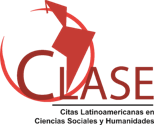CHILD DEVELOPMENT AND LANGUAGE
epistemological implications from cultural-historical theory
DOI:
https://doi.org/10.18764/2178-2229v29n1.2022.10Keywords:
Child development, Speaking and writing, Historical-cultural perspective, Teacher trainingAbstract
This article discusses the epistemological aspects of child and language development. Part of a research (2017-2020), the study addresses the epistemological implications of child development, based on authors such as Vygotsky, Luria, Leontiev, Bakhtin and others. In activities to train children as subjects of language, the teacher can provide learning situations that drive the formation of higher psychic functions in Early Childhood Education and the early years of Elementary School. It is concluded that language plays a key role in child development, and it is up to the school to plan and execute activities for this purpose. In view of this, it is essential to know the epistemological implications on development with a focus on language, with a view to the appropriation of maximum human qualities by the child in relationships with others, through activities that make sense to them.
Downloads
Downloads
Published
How to Cite
Issue
Section
License
Copyright (c) 2022 Cadernos de Pesquisa

This work is licensed under a Creative Commons Attribution 4.0 International License.
A Cadernos de Pesquisa está licenciada com uma Licença Creative Commons Atribuição 4.0 Internacional.




















